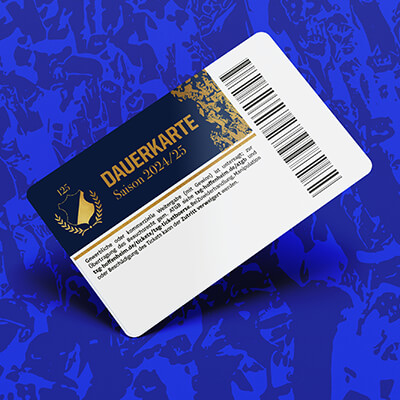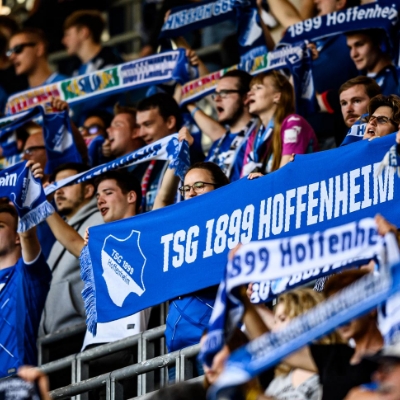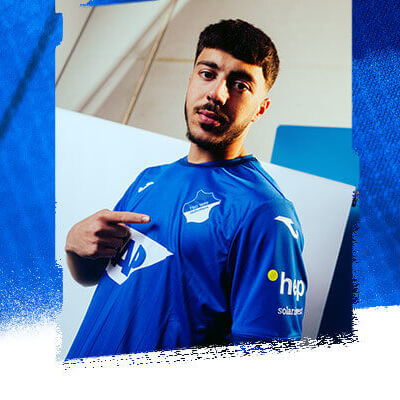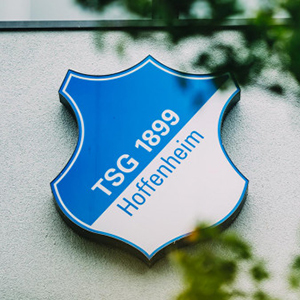Go-getting and driven
Unbounded energy - that's what drives Christian Ilzer, and it also radiates from him. No one in his vicinity can avoid it. For the Austrian, energy, as well as quality, intensity and dynamism, is one of the key components which increase your chances of success. And this approach should more than pay off for the 47-year-old.
But nothing was handed to him in the cradle. Ilzer faced numerous barriers along the way. His first dream job? Professional footballer. His first time at a Sturm Graz home game would have a decisive impact on him. From that moment on, he wanted to play in that exact same black and white shirt one day, at "his" club, and to experience the same energy that had washed over him in the stands on the pitch. It never got to that point. Although his active career took him to the fourth highest league, it never really took off. Three cruciate ligament tears put an early end to the big dream.
After completing his technical training, Ilzer worked at an established regional company as an electrical engineer. For his parents, this meant he had made it into the professional world, and their pride was overwhelming. But their son felt differently. His heart still beat for football. He packed it all in and transferred to Graz University. A short foray into medicine, followed by sports science. There, he gained interesting insights into injury prevention, training methods, and much more. Ilzer soaked it all up and applied it to football.
After all, he'd already been coaching for a while. When he was just 17 years old, the Styrian was already coaching his first junior squad. Later on, step by step, they went from the lowest amateur league - sitting on wooden benches in the Apfelstadion in Puch, Weiz - to the top Austrian league, where there were more comfortable seating arrangements. An odyssey with all kinds of hurdles. His lack of a professional career meant that it took longer for him to get his UEFA professional licence. But for Ilzer, giving up was never on the cards. Quite the contrary. Numerous training and development courses, including some in Germany, for example in match analysis, sitting in on sessions at top international clubs like Arsenal, Paris Saint-Germain and Bayern Munich - the driven go-getter was continuously absorbing more and more knowledge. His motto - that you need to constantly be working on yourself so that you don't come to a halt - still applies to this day.
The end of his career as a player brought him closer to professional football via a different route. Ilzer wanted to become a fitness trainer at the highest level. But in doing his job so well - including working with the Austrian Under-19s squad - he also made it clear to those around him that his talent would be wasted if he stayed where he was. He was too intensely preoccupied with all the different aspects of football - whether it was training methods, tactics, video analysis, psychology, or coaching. It finally clicked when Ilzer led Weiz to a second place finish as head coach in the fourth highest league in the 2012/13 season. The sense that being a head coach was his calling grew, and eventually crystallised into a firm decision. It was by this point at the latest that all those who worked with him recognised all too clearly his potential as a leader.
That leadership quality was in his blood. A flashback to his childhood: Puch, Weiz. A municipality in Styria with 2000 inhabitants, 20 km from Graz. The biggest apple-growing municipality in Austria - and the hometown of Christian Ilzer. His favourite apple is called "Crown Prince Rudolf." Crown prince - how fitting, since Ilzer, now a coach at Hoffenheim, depicts his grandfather as a great role model and teacher. Ilzer describes him as the king of the village, and says he showed him what good leadership looked like. At school, he also acted as representative for his class.
In football, he sees his role as head coach as that of a supervisor. As much as he enjoys gaining insights into a range of relevant areas, he strongly emphasises that he wasn't born an all-rounder. Everyone makes mistakes, but you have to own up to them and be prepared to correct them. To prevent mistakes as far as possible, Ilzer relies on a coaching team of qualified experts. It's the same principle here: he can judge his own capabilities well, and gets the necessary know-how through his staff, from whom both he himself and the whole club profit. As demanding as the charismatic coach is of himself, he also demands the same discipline from those around him.
What characterises his leadership style? His many years of experience in the football business, from juniors to amateurs to professionals. What he's learnt: coaches who don't make clear decisions have a very hard time. Those decisions can't be avoided. Ilzer emphasises that he doesn't try to make everyone happy by any means, but he always wants his decisions to be understandable. He doesn't see himself as an animator, and is well aware of what that feels like, having had experiences in precisely that role in his younger years. Ilzer relies on his instinct for pressing the right buttons at the right moment. He focuses the players' attention - sometimes using very innovative methods - on goals which they can achieve every day, and has proven successful in making many of his players into a success with this approach.
Success is also what motivates the perfectionist. Ilzer, who keeps his private life with his wife Nina and sons Romeo and Ben Diego out of the public eye, but describes his family as a never-ending source of energy, wants to let results speak for themselves. It goes against his nature to be the world champion of announcing things and a nobody when it comes to implementing them. He doesn't leave anything to chance, and wants to leave a lasting impact wherever he goes. Like he did at Sturm Graz. Ilzer was at the wheel of the club closest to his heart for four and a half years. The double in summer put an end to ten years of dominance by Red Bull Salzburg, with the same number of titles. This was made possible by a perfect symbiosis with sports director Andreas Schicker. When the two met for the first time in July 2020, they quickly realised that they had an identical attitude towards football. Together they picked up the first league team from Graz and led them all the way to becoming number one in Austria. Not with a bursting bank balance, but with a philosophy which they applied without paying heed to any losses. A healthy axis of experienced players, combined with young players with development potential, and who can accumulate high transfer fees - this was how the way to the top of the Austrian league was paved.
Ilzer and Schicker - this connection is what should also make Hoffenheim presentable again. The collaboration can be described as fateful. Another flashback: 22nd November 2014. Ilzer is celebrating his first victory in the professional business, in an interim capacity at Wiener Neustadt in the second league. Seven hours later, 105 km away in Bruck an der Mur, Schicker blows off his left hand and the lower third of his arm with a firework. With these events, a new course is set for both men. But fate brought them together. For Ilzer especially, it was a real blessing. He knows what the working relationship with a sports director can be like. At Austria Wien there was no common ground with former Cologne coach Peter Stöger. Instead of working together towards a common goal, the two men were working in opposite directions. After one season, the disagreement was ended - fortunately for Ilzer, for Schicker, for Sturm Graz, and hopefully also for Hoffenheim. One thing's for sure - a lack of energy certainly won't be its downfall!
This article appeared as a guest contribution by Austrian journalist Michael Lorber in the December edition of the SPIELFELD magazine.




















